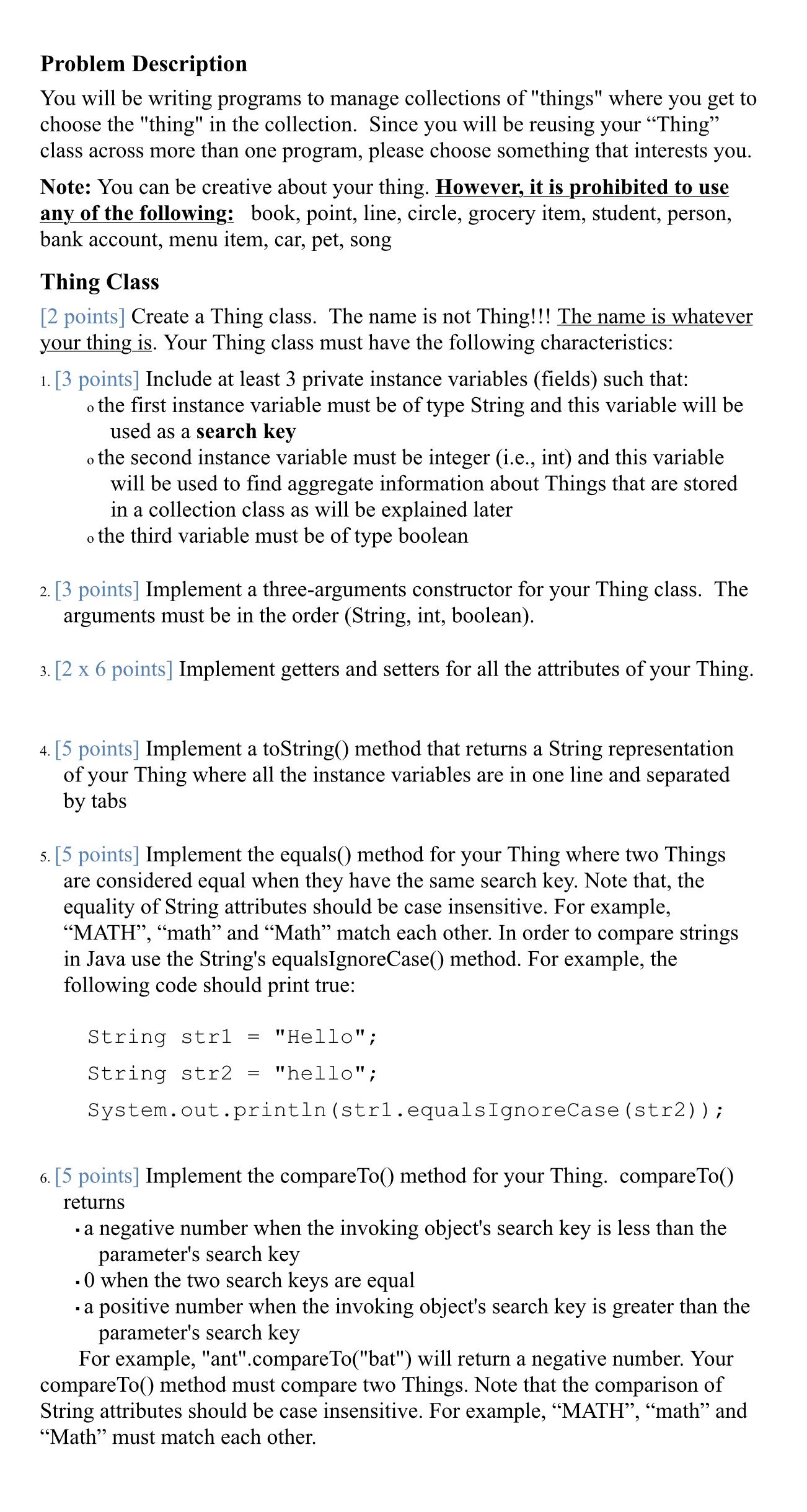Answered step by step
Verified Expert Solution
Question
1 Approved Answer
Problem Description You will be writing programs to manage collections of things where you get to choose the thing in the collection. Since you will
Problem Description
You will be writing programs to manage collections of "things" where you get to choose the "thing" in the collection. Since you will be reusing your "Thing" class across more than one program, please choose something that interests you.
Note: You can be creative about your thing. However, it is prohibited to use any of the following: book, point, line, circle, grocery item, student, person, bank account, menu item, car, pet, song
Thing Class
points Create a Thing class. The name is not Thing!!! The name is whatever your thing is Your Thing class must have the following characteristics:
points Include at least private instance variables fields such that: o the first instance variable must be of type String and this variable will be used as a search key
o the second instance variable must be integer ie int and this variable will be used to find aggregate information about Things that are stored in a collection class as will be explained later o the third variable must be of type boolean
points Implement a threearguments constructor for your Thing class. The arguments must be in the order String int, boolean
x points Implement getters and setters for all the attributes of your Thing.
points Implement a toString method that returns a String representation of your Thing where all the instance variables are in one line and separated by tabs
points Implement the equals method for your Thing where two Things are considered equal when they have the same search key. Note that, the equality of String attributes should be case insensitive. For example, "MATH", "math" and "Math" match each other. In order to compare strings in Java use the String's equalsIgnoreCase method. For example, the following code should print true:
String str "Hello";
String str "hello";
System.out.printlnstrequalsIgnoreCasestr;
points Implement the compareTo method for your Thing. compareTo returns
a negative number when the invoking object's search key is less than the parameter's search key
when the two search keys are equal
a positive number when the invoking object's search key is greater than the parameter's search key
For example, "ant".compareTobat will return a negative number. Your compareTo method must compare two Things. Note that the comparison of String attributes should be case insensitive. For example, "MATH", "math" and "Math" must match each other.

Step by Step Solution
There are 3 Steps involved in it
Step: 1

Get Instant Access to Expert-Tailored Solutions
See step-by-step solutions with expert insights and AI powered tools for academic success
Step: 2

Step: 3

Ace Your Homework with AI
Get the answers you need in no time with our AI-driven, step-by-step assistance
Get Started


